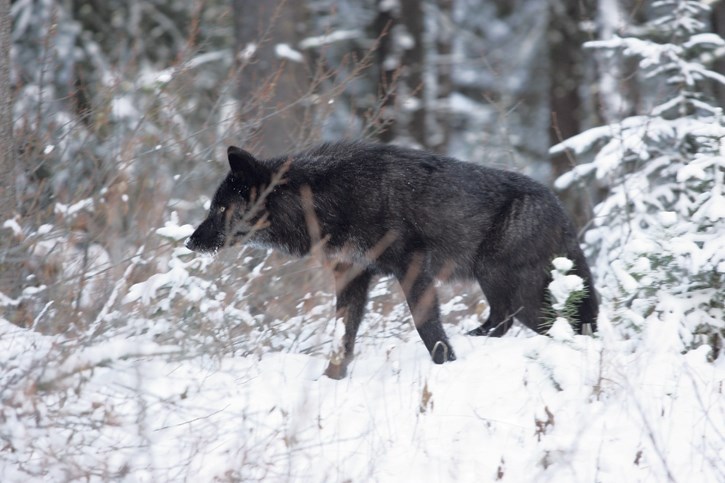Parks Canada laid 25 charges last year against visitors to Banff National Park whose actions led to wildlife directly being fed or having access to food or garbage – down from 53 charges in 2016.
Five of the charges in 2017 involved visitors directly feeding wildlife, while the remaining 20 charges were for attracting wildlife with littering, illegal camping, improper food or garbage storage and messy campsites.
Parks officials say an increase in staffing and a more aggressive communications campaign may have played a role in the drop in charges, despite a four per cent increase in the number of visitors to more than 4.2 million.
“It’s impossible to know for sure what caused the changes, but we certainly had a lot of effort in 2017 focused on new first time visitors to Banff,” said Bill Hunt, resource conservation manager for Banff National Park.
“There was a huge push for communications and proactive efforts with people roving the day use areas and campgrounds and wildlife guardians working to educate people. We had increased staff in a range of areas from enforcement to resource management, visitor experience staff and wildlife guardian patrollers.”
Some of the charges have already made their way through the court system.
Calgarian Adrian Tif was hit with a $400 fine after pleading guilty to feeding bighorn sheep chocolate bars along Norquay Road on the afternoon of June 4. Canmore Provincial Court heard a member of the public reported a driver throwing chocolate bars from his vehicle.
In another case, a group of drunken Australians left a messy campsite, including a pile of vomit that could have potentially attracted wildlife. Joshua Somerville pleaded guilty to a charge of contravening regulations of the Canada National Parks Act.
Court was told wardens responded to a complaint from campground staff who found a campsite littered with alcohol containers and the vomit, which was characterized as having the potential to attract wildlife.
While not in Banff, feeding a grizzly bear French fries in Kootenay National Park cost an Edmonton man $2,500, signalling the courts are taking the illegal feeding of wildlife seriously.
In 2016, two wolves were killed by Parks Canada staff after they accessed food in Banff campgrounds. In one case, a wolf ate dried rice thrown by a church group as an offering to nature, and another ate seafood waste, including shrimp, out of a campfire. Both incidents resulted in $1,000 fines.
Officials say feeding wildlife causes them to become food conditioned and they may become increasingly aggressive.
Hunt said it all comes down to prevention.
“Once an animal becomes food conditioned, once it starts associating people with a food reward, whether litter on the roadside or getting into illegal campsites, or, worst case scenario, hand-feeding, then animals, particularly bears and wolves, become conditioned to seek that food from people,” he said.
“That can be a very dangerous situation that could lead to injuries to people and ultimately to the death of wildlife. There are hundreds of examples across North America that show that has been the case.”
In preparation for an expected onslaught of visitors in 2017 with the federal government’s offer of a free Parks pass to celebrate Canada’s 150th, campgrounds and day use areas saw more patrols, more wardens and resource conservation officers were hired, washrooms and facilities were cleaned more often, with garbage picked up more regularly.
Parks reported there was about a 20 per cent increase to full time equivalent positions at the Banff field unit to take on that added workload. That included approximately 90 students hired with an emphasis on local youth.
Hunt said all of the resource conservation staff positions have been renewed for 2018.
“By and large, we’ve been able to maintain the same levels as last year,” he said. “We don’t anticipate visitation going down. We expect to grow based on the five-year trend.”




